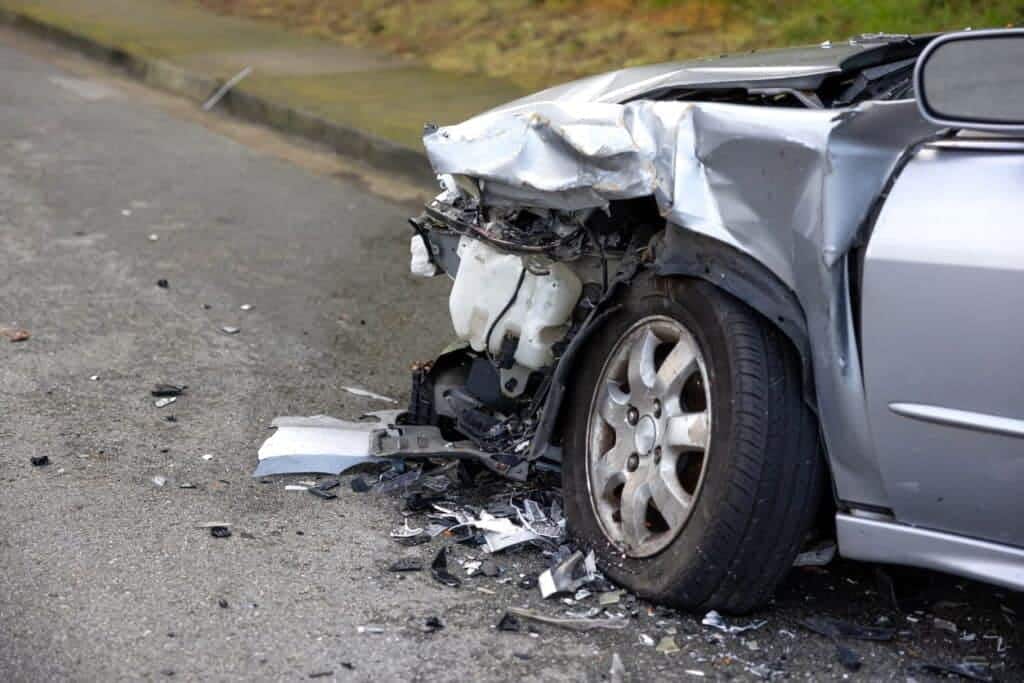What to Know About Settling a Car Accident Case

After sustaining injuries in an auto accident, you may be wondering what you need to do to quickly get a check in your hands so you can begin down the road to recovery. One of the ways to do this is through settlement negotiations. With most car accident claims settling before trial, knowing how to negotiate your car accident settlement correctly is essential.
Going about settlement negotiations in the right way can make a big difference in the amount of your recovery. It’s important to take the time to familiarize yourself with all aspects of settling a car accident case, so you are well prepared to get the maximum amount possible. Here’s what you need to know about settling your car accident case.
If you or a loved one has been injured in a car accident, set up a free legal consultation today with Jack Bernstein, Injury Attorneys.
Why do most car accident cases settle?
The vast majority of car accident cases never get to a jury trial. Most accident cases settle because of a few factors working together. First, Florida has broad discovery rules. It’s quite easy for both parties to gather evidence.
You can demand information from the other side. You can even conduct a deposition of the other driver and depose other witnesses. When both sides have a clear understanding of the facts, they can agree on the general value of the claim. There’s not much to argue about if you can agree on the approximate value of your case and your likelihood of success at trial.
Cases also settle because the courts order the parties to try and resolve them. There’s a good chance that the court will order you to attend mediation. The court will also probably insist that you participate in a settlement conference. With so many opportunities to talk about the case, parties are often able to meet in the middle and reach a resolution.
What are settlement agreements?
A settlement agreement is a resolution that you reach prior to going to trial. By reaching a settlement agreement, the parties will not be required to go to trial on the matter, which spares both sides a significant amount of time and stress, allowing them to walk away with a simpler resolution.
Different types of settlement agreements may include:
- Binding contracts
- Release of liability
- Agreements that can bar claims for other injuries
Be sure to discuss your settlement options with your personal injury attorney to ensure you reach the best outcome for your case.
Benefits of settling
When you settle, you don’t have the stress of a trial. You’re also likely to have lower legal costs and attorney fees. In addition to these benefits, when a defendant agrees to pay a judgment in a settlement, they’re more likely to pay the judgment quickly. That can make a mediated settlement preferable for the practical reason that you’re more likely to get paid.
Demand letter
Because most car accident cases involve an insurance company, one of the things you need to get right is your demand letter. A demand letter is a letter that you send to the insurance company outlining what you want them to pay. It’s not enough just to give a total dollar amount and hope they accept. Instead, you need to carefully document the reasons you’re insisting on a certain amount.
A demand letter can be aggressive and forward, but it must also be professional. The demand letter should also have your contact information and a brief statement of the underlying facts of the claim. The insurance company uses the demand letter to evaluate your claim. If they agree with you, they might extend a settlement offer.
Negotiating considerations and process
In most cases, the first offer that the insurance company extends isn’t going to be the best offer. They’re going to hope that you take the first, low offer. That’s how they save money.
There’s some back and forth to negotiating a settlement. If their offer is low, you need to explain why and demand a better offer. This process requires tact and knowing when to push forward and when to sit and wait.
If you or a loved one has been injured in a car accident, set up a free legal consultation today with Jack Bernstein, Injury Attorneys.
Don’t let the insurance companies talk you into accepting less
Since insurance plays a significant role in car accident cases, it’s important to remember where you stand in your relationship with your insurance company. Your insurance company is interested in the bottom line, not your needs. Your attorney will guide you through how to handle your insurance company throughout the duration of your lawsuit.
Insurance companies will shift blame to you through comparative negligence. Comparative negligence rules consider how much each person is to blame for the accident and plays a significant role in how compensation is allocated.
Types of damages
There are two categories for damages that you may be compensated for in your settlement award:
Economic damages
Economic damages are considered compensatory damages and include anything of monetary value that the victim may be compensated for in their settlement. Economic damages typically include:
- Lost wages and future income
- Medical expenses
- Property damages
Non-economic damages
Instead of focusing on monetary value, non-economic damages focus on the intangible losses incurred in the accident. Common non-economic damages include:
- Pain and suffering
- Emotional anguish
- Loss of enjoyment of life
- Humiliation
- Loss of consortium
Mediation
Mediation is a process that gets both sides at the same table to talk about the case. You work with a mediator that has professional training in helping people resolve disputes just like yours. A mediator can’t make the parties enter into a settlement, but they can help the parties work to reach their own resolution.
Mediation can work in even tough cases. With a neutral third party to act as a go-between, the parties can discuss all the issues in the case in a relatively short period. The parties can also reach an agreement that’s more flexible than they might receive if they wait to resolve the case in court.
How long do I negotiate?
If the insurance company doesn’t send a meaningful response to your demand letter or if they try to use delay tactics, it might be time to begin preparing your case for trial. As long as settlement negotiations appear constructive, they’re worth pursuing. When they stall, and the other side isn’t being reasonable, it’s time to get ready for your trial date.
It’s important not to spend too much time negotiating before you formally file your lawsuit because Florida has time limits for filing a case. This is referred to as the statute of limitations. Once you file, you can pursue a settlement up until your trial date, but don’t let that stop you from thoroughly preparing your case, so you’re ready for any eventuality.
Factors that affect settlement
If your damages are high, the other side may want to avoid a trial. However, if the evidence in your case is questionable, and the other party feels there’s a chance that they could win at trial, they’re less likely to extend a favorable settlement offer.
The other side is going to evaluate your case in all respects. They’ll look at witness credibility and whether they think you’re serious about taking your case all the way if they don’t extend a favorable settlement. The stronger your case overall, the better your settlement is likely to be.
Drafting settlement documents
Remember that your settlement is what’s signed and in writing. If you want something to be part of the final settlement agreement, you must make sure that it’s reduced to writing.
Also, make sure you carefully read each part of the settlement. Words have meaning, and if there’s any question, a court is going to look at the exact language of the settlement agreement. It’s vital to work deliberately as you draft and review settlement documents.
How do I get it right?
When you’re hurt in a car accident, your attorney helps you with every aspect of bringing your claim. Knowing the law is only one way your attorney helps you. You also rely on your lawyer to help you handle the art of negotiation.
An experienced Tampa car accident attorney can write a demand letter on your behalf and take care of complicated communications with the insurance company and the other driver. With the right attorney, you can focus on your recovery.
How long does it take to reach a settlement?
Since there are so many factors that need to be taken into consideration in a car accident case, there is no correct answer to the question of how long it may take for a settlement to be reached. Some settlements may be reached in as quickly as a couple of months, whereas others may take years. It all depends on the extent of the injuries and damages as well as the parties abilities to cooperate with one another.
How long does it take for a settlement to pay out?
Typically, settlement compensation may be paid out within a month. This process usually does not take long and you do not have to wait extended periods of time to receive your settlement payout.
What is the benefit of working with a car accident attorney?
An experienced car accident attorney can guide you through the stressful and confusing legal process that often comes along with car accident lawsuits. An experienced attorney can also fight to ensure you receive maximum compensation and justice for your damages.
Injured in a car accident? Contact Jack Bernstein, Injury Attorneys for a free legal consultation today.
Get help from a skilled car accident attorney

Jack Bernstein, Injury Attorneys is well versed in handling both settlement negotiations, and taking car accident cases to trial. We have the expertise to help you garner a favorable settlement offer and get the maximum compensation available.
Sources:
Goguen, D. Personal Injury Case and How Long Will It Take?
Goguen, D. Personal Injury Damages and Compensation.
Goguen, D. What If Both Sides Are at Fault in a Personal Injury Case?
